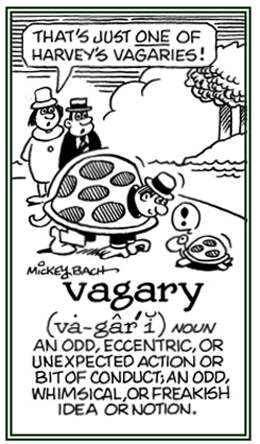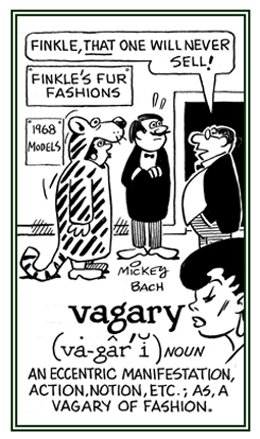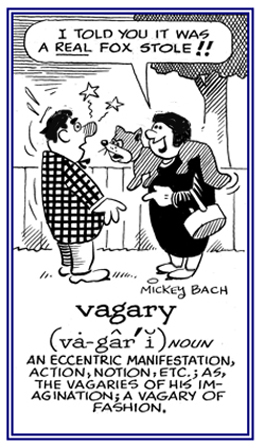-ary
(Latin: a suffix; a person who, a place where, a thing which, or pertaining to; connected with; having the character of; apparatus)
The following examples of this suffix represent a very small number of those that exist in other parts of this lexicon.
unitary
1. Of or pertaining to, characterized by, based upon, or directed towards, unity.
2. Of the nature of a unit; having the separate existence or individual character of a unit.
2. Of the nature of a unit; having the separate existence or individual character of a unit.
urinary
usufructuary
1. Someone who is entitled by usufruct to the use of another person's property.
2. Of or relating to the nature of a usufruct.
3. Someone who holds property by usufruct.
2. Of or relating to the nature of a usufruct.
3. Someone who holds property by usufruct.
A small-scale commercial cattle farm with a dairy and cow pasture.
The word is usually linked to grazing land in the moors and valleys of the Pennines in Yorkshire and Lancashire, England.
1. An unpredictable or eccentric change, action, or idea: People must learn to live with the vagaries of weather conditions.
2. A wild or fanciful notion or act; a whim: Joe had a sudden vagary that influenced his decision to move to Australia.
3. Etymology: from Latin vagari "to wander, to stroll about, to roam," from vagus "roving, wandering."

© ALL rights are reserved.

© ALL rights are reserved.

© ALL rights are reserved.
Go to this Word A Day Revisited Index
2. A wild or fanciful notion or act; a whim: Joe had a sudden vagary that influenced his decision to move to Australia.
3. Etymology: from Latin vagari "to wander, to stroll about, to roam," from vagus "roving, wandering."



Go to this Word A Day Revisited Index
so you can see more of Mickey Bach's cartoons.
valetudinary
Of, pertaining to, or typical of a valetudinarian.
vary (verb), varies; varied; varying
1. To make or cause changes in the characteristics or attributes of; modify or alter: The price of the rooms in the hotel can vary depending on the holidays.
.
2. To change within a range of possibilities, or in connection with something else, or to make something undergo such a change: Sam told his daughter, "Sally, you should vary your diet, because eating just potato chips will harm you in the end."
3. To give variety or diversity to something or to change, to alter, and to modify: Mr. Cook tries to vary the menu by trying to offer something new each week.
2. To change within a range of possibilities, or in connection with something else, or to make something undergo such a change: Sam told his daughter, "Sally, you should vary your diet, because eating just potato chips will harm you in the end."
3. To give variety or diversity to something or to change, to alter, and to modify: Mr. Cook tries to vary the menu by trying to offer something new each week.
venomosalivary
1. Secreting saliva with venom in it.
2. Of or pertaining to, secreting or conveying, venomous saliva.
2. Of or pertaining to, secreting or conveying, venomous saliva.
vespiary
veterinary
1. Of or pertaining to, connected or concerned with, the medical or surgical treatment of cattle and domestic animals.
2. Etymology: from Latin veterinarius, "pertaining to beasts of burden or draft animals"; as in plowing or pulling; especially, veterina, "a draft animal", from vetus, "old" (veter-, stem of vetus, "old"); originally "one year old".
2. Etymology: from Latin veterinarius, "pertaining to beasts of burden or draft animals"; as in plowing or pulling; especially, veterina, "a draft animal", from vetus, "old" (veter-, stem of vetus, "old"); originally "one year old".
Veterina bestia probably means "an animal one year old"; hence, strong enough to draw burdens (1729-1797).
vicissitudinary, vicissitudinous
Marked by, full of, or subject to changes or variations.
1. Produced by, resulting from, or originating in the imagination: Eve is a visionary who thinks that women are treated as equals to men.
2. Someone who has clear concepts as to what should happen or be done in the future: The politician is a visionary who is convinced that economic problems can be solved if labor unions and commercial companies cooperate and work with each other.
3. A person who has a religious or spiritual experience in which he or she sees a holy person who is not living or a holy event which cannot be explained scientifically: Adam's mother is known as a visionary by those who have gone to her for spiritual guidance.

© ALL rights are reserved.
Go to this Word A Day Revisited Index
2. Someone who has clear concepts as to what should happen or be done in the future: The politician is a visionary who is convinced that economic problems can be solved if labor unions and commercial companies cooperate and work with each other.
3. A person who has a religious or spiritual experience in which he or she sees a holy person who is not living or a holy event which cannot be explained scientifically: Adam's mother is known as a visionary by those who have gone to her for spiritual guidance.

Go to this Word A Day Revisited Index
so you can see more of Mickey Bach's cartoons.
vivary
A place where living things are kept; such as, a park, on land; or in the water of a pond.
vivipary
Producing live young from the body.
1. A collection or list of terms with brief explanations of their meanings: A vocabulary is a complete word stock of a language; an extensive body of verbal elements used when speaking, reading, or writing as a group, a class, or by individuals.
2. The range, or extent, of statements associated with a subject or area of activity, or used by a particular person, class, profession, etc.: One's vocabulary is considered to be a scope of expressions and an extensive range of linguistic communications.

A click on the above banner will present special information about
the many sources of English vocabulary.
2. The range, or extent, of statements associated with a subject or area of activity, or used by a particular person, class, profession, etc.: One's vocabulary is considered to be a scope of expressions and an extensive range of linguistic communications.
A good way to improve one's vocabulary is to learn more about their roots or sources of where they come from.
3. The sum, or aggregate, of elements composing a language, or languages: Vocabularies consist of lists of words; usually, defined and alphabetized, as in dictionaries, specialized glossaries, etc.; all of which are used to make it possible for people to communicate better with each other. 4. Etymology: a stock of words from 1532, in the writing of Sir Tomas More; perhaps borrowed by influence of Middle French vocabulaire, which came from Medieval Latin vocabularium, "a list of words"; from Latin vocabulum, "a word, a name"; from vocare, "to name, to call".the many sources of English vocabulary.


